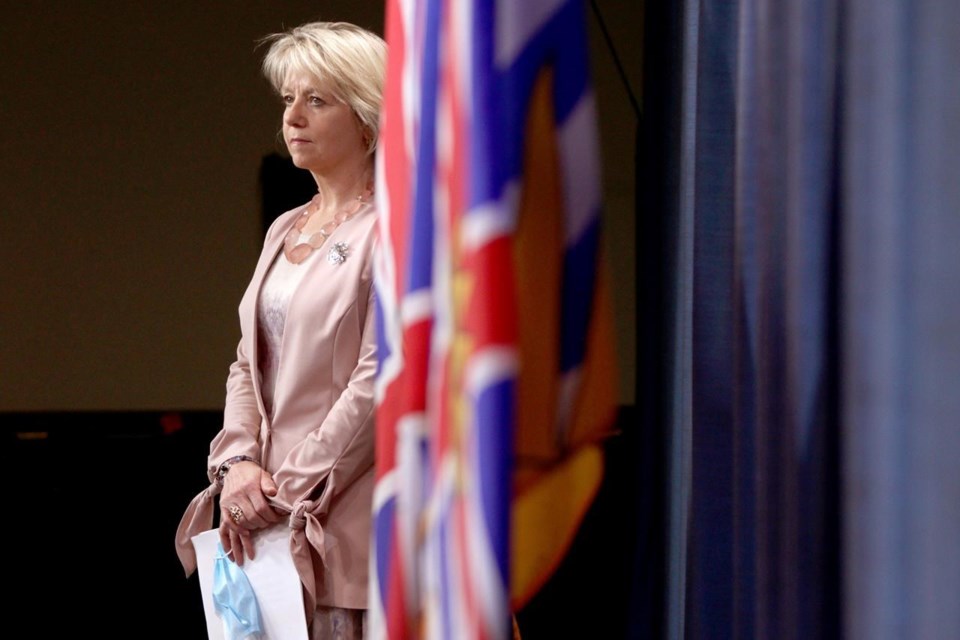VICTORIA — COVID-19 cases in British Columbia are levelling off after peaking in mid-November, though the province's top doctor warns now is not the time to relax public health rules.
The majority of cases are being traced to known infections and outbreaks, provincial health officer Dr. Bonnie Henry said Wednesday.
However, keeping up with contact tracing is still a challenge, particularly in the hard-hit Fraser Health region, she said.
The Northern Health authority has also been stretched in recent weeks, said Henry, who is issuing a new public health order requiring a slower, phased startup for industrial work camps in the new year.
The nature of the camps means employees frequently travel to and from the sites and there's usually an influx of workers in January, elevating the risk of illness spreading to nearby communities, she said.
When presenting the latest modelling data, Henry showed the reproductive number for the illness has dipped slightly below one, meaning on average, someone who's infected may not transmit COVID-19 to anyone.
She said that shows ongoing public health rules are working, though she urged people to stick to their own households over the holidays as hundreds of people are still testing positive for COVID-19 every day.
Henry points to the week of Dec. 15 to 21 as one of the most challenging throughout the pandemic, as 109 people died after contracting the illness.
B.C. recorded 518 new cases of COVID-19 on Wednesday and 19 more people have died, pushing the death toll in the province to 796.
Young and middle-aged adults continue to be overrepresented among cases, particularly those between the ages of 20 and 29, government figures show.
School-aged children are underrepresented among those who've tested positive, Henry said, presenting data showing seven in 10 schools have not confirmed any exposures to COVID-19 and the vast majority of exposure events haven't led to transmission in school settings.
B.C. also has word that it could receive the first doses of the newly approved Moderna vaccine as early as Monday, said Henry.
More than 5,600 people have been immunized so far with the Pfizer-BioNTech vaccine in the province.
The latest vaccine comes in trays of 1,200 doses that can be broken down into smaller quantities than the Pfizer-BioNTech offering, making it easier to transport and deliver to remote communities and long-term care homes, Henry said.
While the Pfizer-BioNTech vaccine must be stored at ultra-low temperature in freezers, Moderna's can be stored in the fridge for longer periods, she noted.
B.C. has identified 10 remote First Nation communities that should receive doses of the vaccine as soon as it arrives in the province.
In the new year, the focus of B.C.'s immunization program will shift to include people over the age of 80 living in the community, as well as people experiencing homelessness and those using shelter services, Henry said.
The province is expecting to receive 792,000 doses of both vaccines between January and March, said Henry, allowing about 549,000 people to receive their first dose and another 240,000 to receive their second.
— by Brenna Owen in Vancouver
This report by The Canadian Press was first published Dec. 23, 2020.
This story was produced with the financial assistance of the Facebook and Canadian Press News Fellowship.
The Canadian Press



